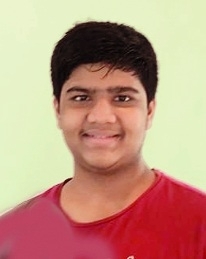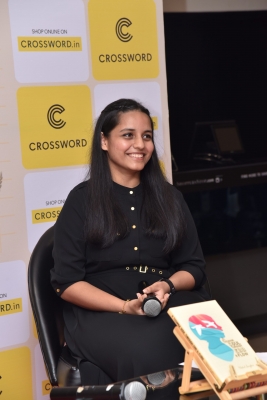Joy Agarwal founder of Community Space One

He is the founder of Community Space One, an organisation working on sustainable development using space technology. A TEDX speaker, he's also the CEO of a project called CERES.
What does your organisation Community Space One do?
As the name suggests, it is a community of people working together to promote sustainable development using space technology. Sustainable development aims to save enough resources for the future. Our organisation works to find satellite data, process it and derive impactful results. For example, we participated in NASA'S EO Dashboard Hackathon where we worked towards making a time-lapse of the Mumbai Airport's pollution as the COMID-19 waves progressed. The analysis suggested that as there were fewer flights, the number of pollution factors had also dwindled. So, we could say that airports have a major role in pollution. My organisation has a few mentors who excel in their field and guide us. We also have technological enthusiasts who help in processing the data and giving a good output And finally, we have a unique team of change makers who drive the data and bring a change with social activities.
Why do you think awareness should be spread on sustainable development goals? Which sustainable development goals are you focussing on?
Sustainable development goals are the need of today's generation. I'm currently working on sustainable development goals number four and 15. They speak about quality education and life on land. In terms of reaching out to people, if the common person doesn't look at the things that create devastation in their lives, then we, the changemakers, make a move to bring it to their notice. It is today's youth who are the key to reaching out to people. They have the zeal to make a change since it is their future that is going to be impacted.
Share with us your experience of being a TEDX speaker.
When I was in Class VI, I was invited as a speaker. Since I was very young, I didn't have any clue about it. I was very fortunate to stand before all the experienced people. I was very proud to share my stage with Terence Lewis, a famous choreographer. It was a wonderful experience and a knowledgeable platform to learn.
Tell us about your project CERES and your role in it.
A study conducted 10 years ago said there was a relation between cosmic radiation and the growth of saplings. So we are working on this concept by sending a few saplings to high altitudes, about 30 to 40 km. and measuring their growth over time. We are also trying ways to replicate this on a large scale to gain the forest cover we lost. I'm the chief executive officer of this project. My role is to manage the research aspect of the project, focussing on space technology. I also look over the managing part of the project, i.e., cultivating strategic partnerships. Recently, we signed an MOU with the a government polytechnic for joint research and skill development.
What prompted you to get into space technology? I have wished to become an astronaut from a very young age. My parents gifted me a telescope, which I would say was the starting point for my interest in space technology. And participating in various competitions improved my knowledge and technical skills. But the main reason I clubbed the technical skills and my space interest was because of my mentor, a space system professor, who guided me
As a teen entrepreneur, how do you manage time?
I have always wished to have a system of homeschooling. Fortunately, this lockdown has given me ample time to concentrate on my studies as well as my external skills. This has made me manage time efficiently. I prioritise important work. I make sure I focus on my academics and external projects in a balanced manner.
What are your hobbies and future plans?
I read a lot of books and pen down my thoughts. In the future, I don't want to become a random engineer who works all day. I aspire to become a changemaker where I'm globally known. I would love to work in the United Nations as a proud citizen of India.
What is the one thing you would love to contribute to society?
I would like to work towards 100 % literacy and zero hunger. If we can combine these two policies, we can make Earth a better place to live in. I think this will improve the country's status too.
Picture Credit : Google
